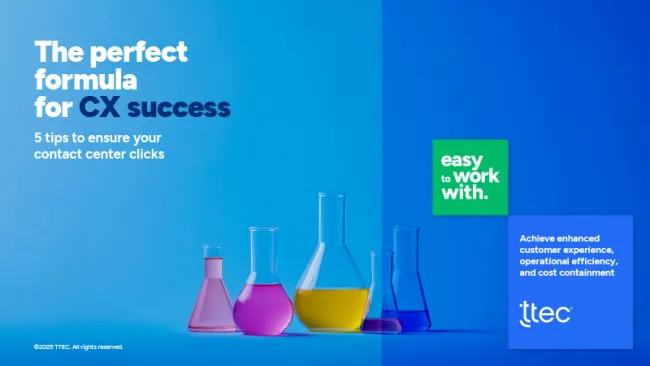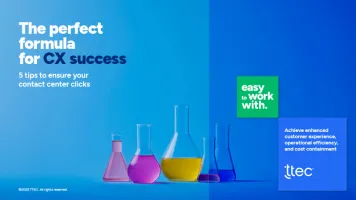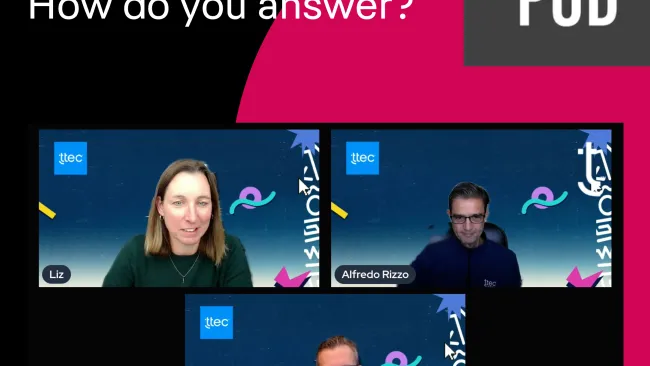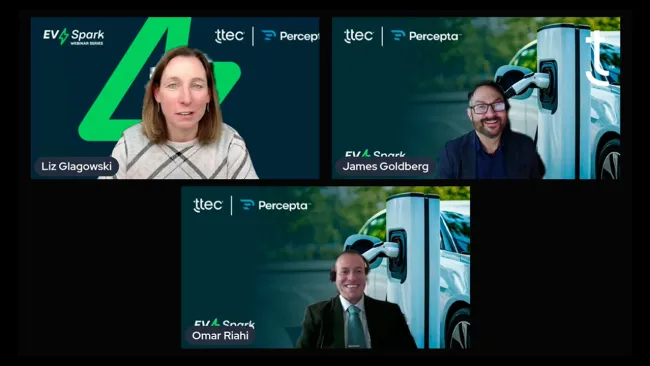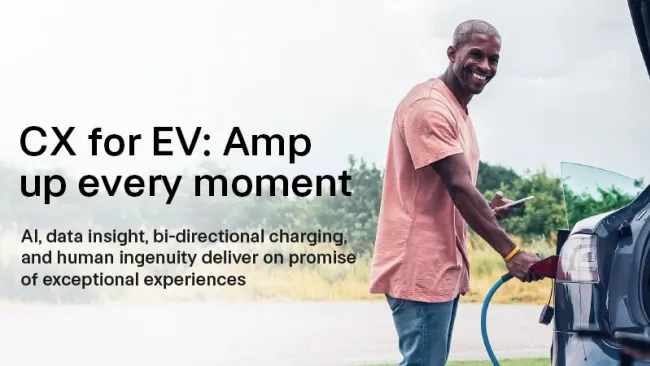Government agencies, historically, haven’t been known for embracing technology and streamlining processes. But when the COVID-19 pandemic hit, they had to act fast. Seemingly overnight, citizens demanded useful, up-to-date and easy-to-understand information from government websites, call centers, employees, apps and social media in ways they never had before. Nearly a year later, that demand has only grown.
Governments and citizens alike benefit from a positive CX experience. And no agency is too big to focus on CX—some are even calling on President Joe Biden’s administration and Congress to create a permanent federal chief customer officer. While some federal agencies have been working to improve federal CX, proponents say bigger strides could be made if someone were tasked with overseeing the way all federal agencies coordinate customer experience efforts.
It can be difficult to glean silver linings from a global pandemic, but one may be the opportunity it has given government leaders to become more citizen-centric. Even once the pandemic has passed, governments will benefit in the long run from improving citizen experiences.
CX challenges facing government agencies
Like so many other sectors, government has operated in two main eras: pre-COVID and post-COVID. As recently as the beginning of the year, innovative customer service at the government level wasn’t top of mind. But when disaster struck, agencies that hadn’t implemented a full suite of channels, such as messaging and SMS to complement voice, were quickly overwhelmed. Compounding the problem, implementation of automation and IVR tools weren’t evolved enough to assist callers’ experiences.
These are unprecedented times, which have caught many off guard. As government agencies continue to navigate and adapt against this backdrop of uncertainty, they face myriad challenges.
Of course, in many places, government plays a key role in flattening the curve of COVID-19 - which, in itself, is a huge challenge. Citizens’ needs still need to be met, but they must be met safely and, increasingly, digitally. That means government workers must be able to deliver a human touch without getting caught up in manual tasks.
Technology can offer some great solutions, but brings its own set of challenges. Digital tools like text messaging, AI and automation, for instance, can be overwhelming and costly to implement. It is critical that agencies guide public-facing employees slowly, one step at a time, to ensure organizations increase citizen satisfaction and generate a return on investment.
In many cases, the key to positive citizen experiences lies in giving citizens control of channels and experiences. This may involve a culture change and new ways of thinking at many agencies; it’s not the way many agencies have operated in the past. But people want to interact with government where they are most comfortable. Enabling agency IVR to provide self-service options lets citizens control their interactions, and gives associates more time and empathy to devote to more-complex citizen interactions.
Reinventing the citizen experience
Like all consumers, those interacting with government agencies are savvier than they’ve ever been, and agencies need to keep pace. Here are just a few examples of how TTEC partnered with public-sector and NGO clients to help them create great experiences during times of need.
When Charlotte Center for Legal Advocacy, organizers of the nonprofit 335forNC, successfully obtained a deadline extension for low-income families to apply for COVID-related relief funds from the North Carolina Department of Revenue, it needed a partner that could mobilize quickly to deliver contact center technology and support services. Within 72 hours, TTC assembled a virtual contact center and related systems staffed with 60 experienced work-from-home agents.
"TTEC's CXaaS platform provided 335forNC with the ability to rapidly deploy both the citizen engagement technology and the multilingual support required to serve a diverse set of families. The main goal was to assist families in need, and we were fortunate to gather the resources to navigate them through the application process. A combination of leadership experience at the frontline and leveraging TTEC's technology allowed our teams to build a strong bridge to aid these North Carolina families," said L.T. McCrimmon, administrator at 335forNC.
And when Hurricane Harvey made landfall in Texas, TTEC quickly mobilized in less than 48 hours to deploy an urgent emergency contact service and set up hotline service through 10 locations, including three pop-up sites in Houston. In one week, systems were up and running to support FEMA in helping residents impacted by the disaster.
Invest now, benefit long-term
It is in government leaders’ best interests to be nimble, adaptable and citizen-centric. We’ve learned that lesson amid COVID-19, and it will continue to hold true once the pandemic ends. There will always be times in the future - whether it’s a pandemic, natural disaster, or other crisis that involves immediate action - when governments will need to pivot quickly to best serve their citizens.
Tomorrow’s experiences begin now. Great citizen experiences don’t just happen; they are orchestrated, through thoughtful, strategic planning - and implemented by teams with the knowledge and desire to carry out the vision. For many government agencies, delivering relevant citizen experiences starts with reassessing how their contact centers confront uncertainty. That should be a top priority.
Difficult times must be met with innovation, and there is no time to waste when it comes to preparing.

